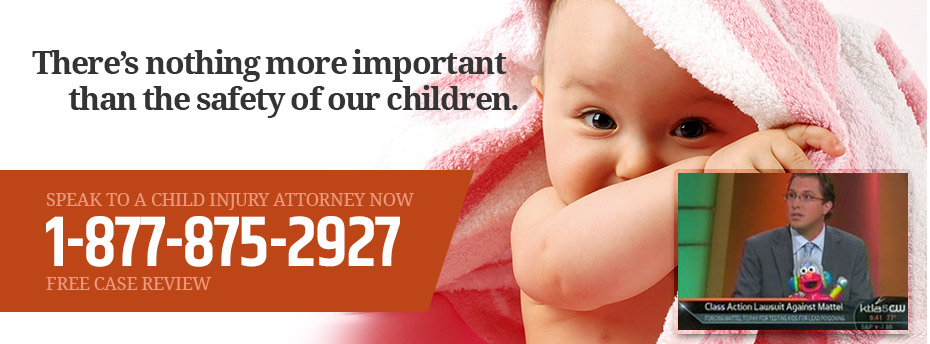 Every parent and caregiver knows that children are naturally inquisitive and like most small and shiny things, they will put toy batteries in their mouths. Swallowed foreign bodies will usually pass harmlessly through the GI tract, but over the last few decades, button battery ingestions resulting in serious complications or death have increased.
Every parent and caregiver knows that children are naturally inquisitive and like most small and shiny things, they will put toy batteries in their mouths. Swallowed foreign bodies will usually pass harmlessly through the GI tract, but over the last few decades, button battery ingestions resulting in serious complications or death have increased.
Button batteries have become deadlier because of an increased diameter and a change to lithium cells, and the” growing inclusion of the batteries in everyday products has made them more of a problem”, according to a 2015 report co-authored by a pediatric gastroenterologist.
Every three hours, a child or teenager will visit an emergency department to be examined or treated for battery ingestion, reports the American Academy of Pediatrics. Ever year, more than 2,800 kids in the U.S. are treated in hospitals after ingesting button batteries.
Nationally-recognized child injury attorney Jeffrey Killino has handled a wide variety of defective product cases, including those arising out of injuries caused by children ingesting batteries. Our experienced attorneys, paralegals, and investigators share the goal of helping injured families win the compensation they need and the justice they deserve. If your child has been hurt or killed in a preventable accident caused by negligence or a defective product, call us today at 1-877-875-2927.
What are Button Batteries?
Most people have no idea that button batteries are so dangerous, and they are everywhere. You likely have several in your home. These disc shaped, silver batteries are found in small electronics such as remote controls, singing greeting cards, hearing aids, handheld video games, and many toys.
Button Batteries Result in Deadly Complications
Of particular concern are with larger lithium-based batteries, which can lodge in the esophagus. (Less worrisome are smaller batteries that end up in the stomach where they’ll probably pass in a bowel movement.) These button batteries can cause a potentially dangerous injury due to a chemical reaction between the esophagus lining and the battery’s remaining current. A caustic burn can result—even if the battery is spent– and the severity can escalate in just minutes after swallowed. The longer it is in the body, the more damage it causes.
Many of these products contain newer and stronger batteries. Compared to the 1.5-volt button batteries, the larger 3-volt lithium batteries have increased the risk of life-threatening injuries dramatically. A battery below 3 volts power may not be able to run an electronic device, but it still can cause tissue erosion in less than two hours, leading to surgery, months with feeding and breathing tubes, and even death.
Serious complications have also been reported when these batteries are placed in the nose or ear: urgent removal is critical.
There is also another deadly complication. Even after the battery is removed, this alkaline solution can remain in place, eroding and burning away tissue. Typically, the cause of death in a button battery ingestion is hemorrhage because this solution eventually erodes through a major blood vessel. Even if the patient is in a hospital when the bleeding starts it is very difficult to repair.
Defective Button Batteries
The battery button itself may be defective because it does not contain a proper coating that could prevent the leaking of battery fluid into the child. There has been an increase in the amount of lawsuits filed against the makers and sellers of these button batteries as more children are becoming injured and\or killed everyday from these products. Lawsuits have also increased as the evidence of a safer alternative has been shown.
If your child has been injured by a toy battery or button battery, you may be entitled to recover damages from the party or parties responsible. Child-injury lawyer Jeffrey Killino is dedicated to helping children and families obtain the compensation they deserve. Contact Jeffrey Killino at 877-875-2927 to learn about your legal options.
Toy Battery Injury Prevention
According to the National Capital Poison Center, an adult does not witness most accidental ingestions. Signs of trouble include drooling, coughing, vomiting, chest pain, inability to swallow and refusal to eat. Families and caregivers should take proactive steps to keep all batteries, no matter the size, out of reach.
That means only buying toys that have battery pockets or pouches secured with a screw. Store remote controls, hearing aids and other such items on higher shelves or surfaces (and, of course, any loose replacement batteries as well).
Attorney Jeffrey Killino is not only an experienced lawyer — he is also a child advocate. When a child injury or death occurs, whether caused by a button battery or other product, he has the know-how and resources to guide you through the legal process to get what you and your family are entitled to. Contact child injury attorney Jeffrey Killino today at 877-875-2927.





